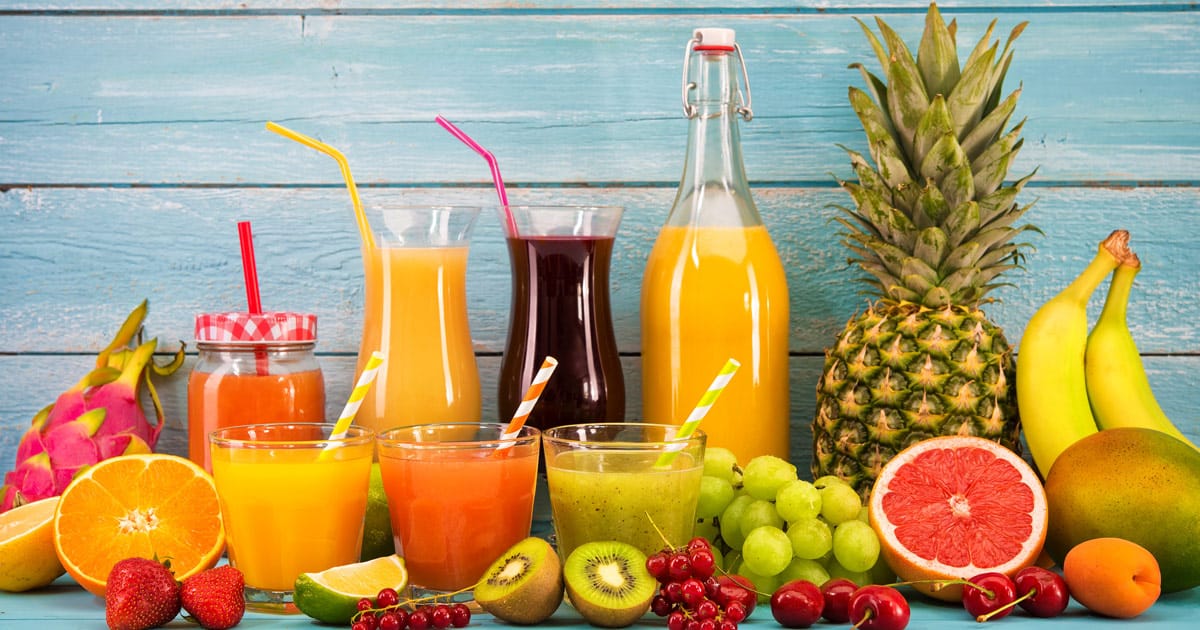
There is a paradox in the world of food. Consumers increasingly gravitate toward fresh, whole ingredient foods, all while eating in a way that is friendlier to the environment. The shipment and storage of food is a huge cost in dollars and carbon, but thankfully there is a great way to let people have it both ways. Juice concentrates are great sources of many nutrients, but can be shipped and stored for a fraction of the cost.
Juice concentrates are, in the simplest terms, fruit juices with nearly all the water taken out of them. Naturally occurring juices contain mostly water, which makes juices harder to transport. By removing the water content through evaporation, fresh juice can be turned into a juice concentrate that can be easily transported and stored. This concentrate can be used as a flavorant in other food and beverage products, but it is most often mixed with water to recreate delicious, refreshing juice drinks.
The juice concentrate most people are familiar with is orange juice concentrate. With roughly 40% of the global market for concentrates, orange juice is far and away the most popular. Apple juice concentrate is also popular, but these are far from the only fruit juices that can be found in the freezer section at your local grocery store.
The advantages of longer shelf lives, ease of transport, and the concentrated flavor of concentrates can open up a host of opportunities when looking to add natural flavors to food and beverage products.
Juice concentrates have a bad name with some consumers, but this is due to the presence of sweeteners, added sugars, and additives in some concentrates. Consumers who are concerned about these additives should pay attention to labeling, as these added sugars are listed among the ingredients, and should be easy to spot.
High quality juice concentrate retains the nutritional advantages of not from concentrate (NFC) juice. There are some who raise concerns about the loss of some nutrients, such as fiber, in making a juice concentrate. Here, the devil is in the details. Some poorly produced juices are packed with added sugars and stabilizing agents to help maintain flavor and color over long periods on the shelf.
Another question sometimes raised about juice concentrates is their effect on blood sugar. Compared to whole fruit, concentrates can contain more carbs and natural sugars, but when used as a sweetener in other products fruit concentrate still carries fewer downsides than other forms of added sugar. This is an important consideration if you are a food producer looking to add a little sweetness to your products while maintaining the clean label allure of not using added or artificial sweeteners.
Alongside citrus mainstays like tangerine and grapefruit, many other fruits can be found in what are called fruit cocktail or punch. These juice drinks are often still made from fresh juices, but combining them means they can no longer simply be called juice. These mixtures often contain popular base flavors like orange juice or mango puree, but have other fruit juices added to the mix. A few of the juices found in these mixes include:
Another popular base flavor that is often combined with other fruit juices is cranberry. A very strong flavor by itself, many other fruit juices can be combined with cranberry juice to create delicious juices that carry the health benefits of cranberries while reaching a wider audience that may gravitate toward sweeter flavors.
In the end, there are some applications where “fresh juice” matters in labeling, but in most contexts, juice concentrates can provide all the flavor, nutrition, and appeal while keeping costs and logistical hassles to a minimum.
At FruitSmart we work to produce only the highest quality juice products. We start by working with high-quality suppliers to ensure all our products begin with the best raw materials. This gives our essences, juice concentrates, and NFC juices an edge. By working hard to create the highest quality juices up front, we can help you avoid the need for artificial sweeteners and colors in your final products.
If you are interested in seeing how partnering with FruitSmart can help bring life to your product line with our juices and fruit solids, contact us today.
